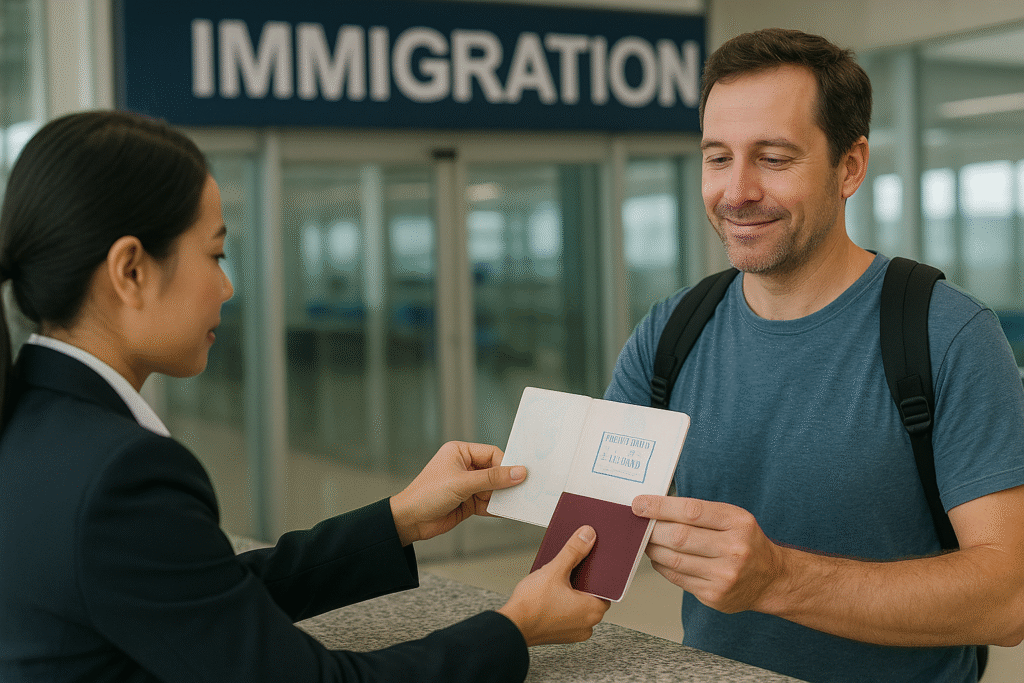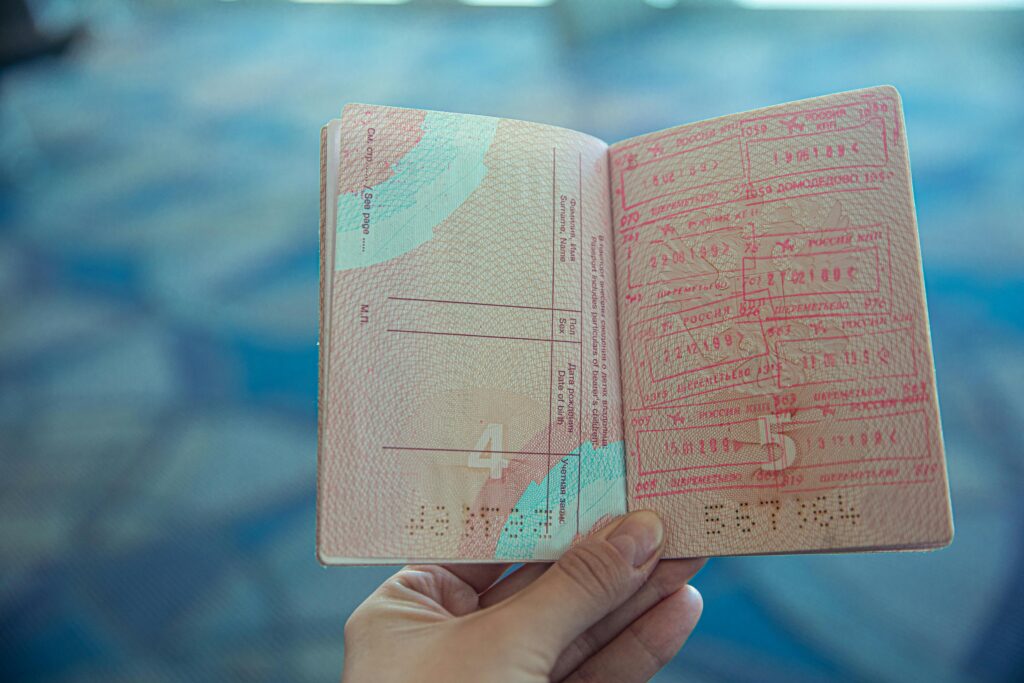Thailand remains a favored destination for tourists, expats, and digital nomads due to its beautiful scenery, culture, and relatively affordable living. However, staying legally for extended periods requires navigating complex visa and immigration policies. Many visitors resort to the practice of “border runs” or “visa runs” to extend their stay. In 2025, the rules surrounding these runs have tightened significantly, introducing new limits and risks.
This article explores the latest regulations on Thailand border runs, their limits, common risks involved, and better legal alternatives for long-term residency in 2025.
What Are Thailand Border Runs and Visa Runs?
A border run is a short trip out of Thailand and back to obtain a fresh visa-exempt entry stamp, usually allowing a 30-day stay. This method has traditionally allowed travelers on visa-exempt entries to “reset” their permitted stay without applying for long-term visas. It can solve a short-term problem when an in-country extension isn’t available. It’s not a stable plan if Thailand is where you spend most of the year.
In contrast, a visa run involves exiting Thailand and applying at a Thai embassy or consulate abroad for a new visa type, such as a tourist visa or non-immigrant visa, which grants a longer stay of 60 to 90 days or more.
Both methods have been popular strategies to extend stays legally without committing to a formal visa.
While technically legal, both are no longer a long-term solution. They are closely monitored by Thai immigration and subject to increasing restrictions.
Updated Rules and Limits for Border Runs in 2025
In 2025, Thailand implemented stricter rules to restrict border run practices:
Two Overland Entries Limit
Travelers using the visa exemption upon land entry are now officially limited to two overland entries per calendar year. This drastically reduces the frequency with which one can do border runs by land.
Air Entry Unlimited but Scrutinized
There is no official limit on air entries, but immigration officers have discretionary power to deny entry if they suspect frequent short-term arrivals aiming to circumvent the visa system.
Visa-Exempt Stay Reduced
The usual 60-day visa-exempt stay may be shortened to 30 days as part of ongoing reviews in 2025 aimed at reducing overstays.
Malaysia exception (check locally)
Some advisories say Malaysian passport holders are not subject to the land-entry cap (unlimited land entries), while others apply the standard rule. If you’re Malaysian or planning frequent runs via Malaysia confirm with your embassy or consulate before you rely on this.
Required Documentation
Travelers attempting border runs must be prepared to show proof of onward travel, accommodation bookings, and financial means to support their stay.
These new restrictions intend to curb abuses of the visa exemption program and encourage proper visa applications for longer stays.

Risks Associated with Frequent Border Runs
Frequent border runs come with increasing risks due to heightened immigration scrutiny in 2025:
- Increased Immigration Scrutiny: Immigration officers are more vigilant and routinely check travel history for multiple short entries and exits. Repeated stamps indicating frequent border runs raise red flags, leading to closer questioning about the purpose of the stay.
- Denial of Entry or Visa: If officers suspect a traveler is abusing the visa-exempt system or border runs to remain long-term without proper visas, they can refuse entry, forcing immediate return to the previous country. Denial may also lead to blacklisting or bans on future visits.
- Proof of Funds and Intent Required: Travelers may be asked to present sufficient funds, confirmed accommodation, and confirmed onward tickets to prove they are genuine tourists and not overstaying or working illegally.
- Overstay Penalties: Failed or delayed border runs that result in overstaying attract fines of 500 THB per day (up to 20,000 THB). Overstaying can lead to detention or bans from re-entry, which complicates future travel and visa applications.
- Damaged Travel History: A history of frequent border runs and entry denials damages the travel record, potentially causing stricter visa screening from other countries and complicating future international travel plans.
In 2025, Thailand has also intensified immigration raids and crackdowns on visa overstayers and unauthorized foreigners, increasing the risks for anyone trying to extend stay through border runs.
Popular Border Run Destinations in 2025
Border runs typically involve crossing the land borders into neighboring countries in close proximity to Thailand:
- Malaysia (Padang Besar)
- Cambodia (Aranyaprathet/Poipet)
- Laos (Vientiane)
- Myanmar (Mae Sai/Tachileik)
Each border has different levels of congestion and procedural ease, with some checkpoints recommended as safer or smoother for border runs in 2025. Short trips to these locations allow travelers to re-enter Thailand and get a new visa-exempt stamp or apply for different visas.
Better Alternatives to Border Runs in 2025
Given the tightening of rules and increasing risks, relying on border runs for long-term stays is less practical and more dangerous. Here are better options:
Apply for a Long-Term Visa
Thailand now offers various long-term visa options that better suit digital nomads, retirees, and workers, including:
- Long-Term Resident (LTR) Visa: A new 10-year visa targeting wealthy individuals, retirees, digital nomads, and skilled professionals, providing longer stays and multiple entries with workplace permissions, reduced tax rates, and simplified reporting obligations.
- Non-Immigrant Visas: Issued for business, education, retirement, marriage, or volunteering. These visas provide stays of 90 days extendable to 1 year, usually requiring sponsorship or proof of purpose.
- Retirement Visa: Available for those 50+, with financial proof requirements and regarded as a reliable route for retirees wishing to stay longer.
- Thailand Privilege (formerly Elite). Membership-based long stay (multi-year) with airport/immigration conveniences; higher cost, low admin.
Applying for these proper visas reduces border run dependency and the risks of entry denial while providing legal security.
Use Visa Extensions in Thailand
Tourists with valid visas can often apply for extensions at local immigration offices within Thailand, avoiding the need for border runs and border crossing hassles. Extensions have conditions but provide a safer alternative.

Practical Next Steps (and How SVBL Helps)
If you’ve already used your in-country extension, need to activate a consulate-issued visa, or are briefly between visas, a single, well-prepared border run can still make sense. Treat it as a one-off tool not a routine.
If your goal is a longer, steadier stay or unsure whether a border run is advisable in your case, use in-country extensions where allowed or move to a long-stay visa that fits your lifestyle. If you’re unsure which path fits, SVBL can help you choose the right long-stay visa, prepare the file, and handle the process so you stay legal without the stress.


